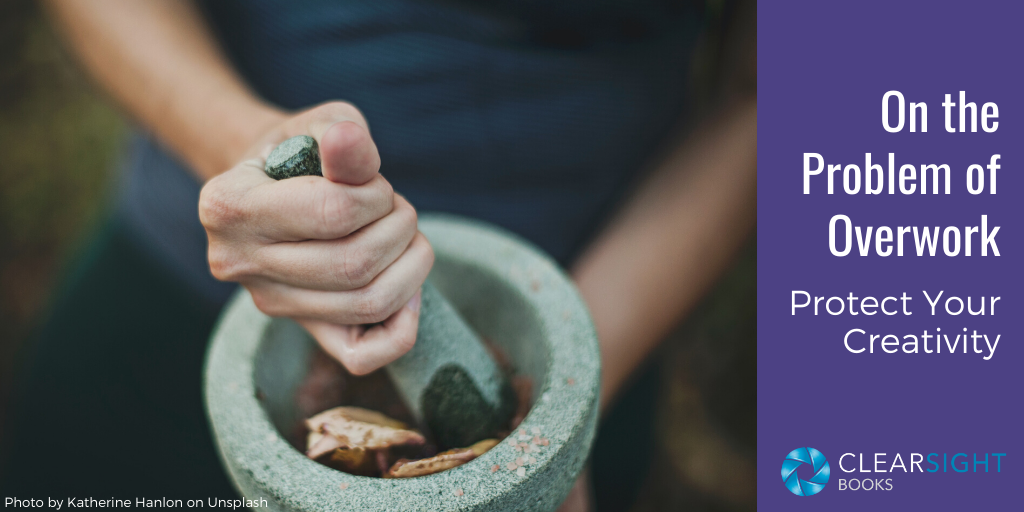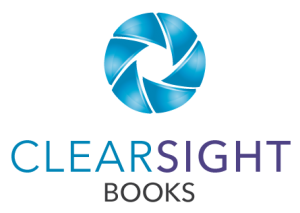
After several weeks in stay-at-home coronavirus isolation, I am starting to hear a new pattern from colleagues: “I’m being so productive!” “I am working all the time…” “I am getting burnt out.”
This work may be paid or unpaid. Some of us are lucky enough to be able to work at home and business is basically status quo. But many entrepreneurs are having to pivot their in-person business to an online format, which requires huge amounts of work to redesign programs, develop new marketing, and learn new technology—without a guarantee of any takers. On top of that, plenty of folks are dealing with homeschooling their kids and other familial challenges.
I don’t need to tell you that overwork takes a toll on your physical, mental, and emotional health. It can also damage your creative health.
How overwork impacts your writing
Creative work, such as writing, takes energy. Work drains that energy. Overwork puts you in deficit mode, and you end up writing from a place of “push.”
When you have to gather all your energy just to come to the task, it feels more difficult than usual. You procrastinate, you can’t focus, you read and reread the same lines over and over…
As a result, the writing process takes longer—right when you don’t have time to spare.
Finally, the quality of writing can suffer. When you write from a place of ease, the words flow, you get in a groove, you get creative; when you push, it’s harder to find that flow, those insights. Now, to be fair, some writers find their writing quality to be reasonably consistent regardless of whether they are “inspired” or “slogging.” My guess is that’s largely due to practice—their technical skills compensate for a lull in creative energy. (Conversely, you can feel in the flow—say after a restorative beverage—and the next day read what you wrote and cringe.)
Even if you are a writer whose quality remains consistent, I’m guessing you don’t want to spend more time and energy than needed on writing your book. There are simply too many other demands on you right now.
Minimizing the impact of overwork
We all have our own coping mechanisms in times of stress and overwork. Here are some that work for me and that I’ve seen work for others (YMMV).
Acknowledge the overwork pattern.
There are absolutely legitimate reasons to be working hard right now, but recognizing you are working to the point of burnout—and saying it out loud—can help deflate the magnitude of the issue and make it more manageable.
It also can be beneficial to identify if there is a pattern behind the overwork. The one I’ve heard most recently: “Work is the one thing I feel I can control—so I’m doing it all the time.”
Prioritize.
Ask yourself which tasks are the most important, which you can minimize effort on, and which ones you can backburner. I have some clients who are finding that in isolation they no longer have the “busyness” excuse to not work on their book, so their book is a top priority.
I’ve seen others who want to make progress but simply cannot make a book their top priority. If that’s you, write 50 words a day. That’s a paragraph. If you can manage five paragraphs, great—that’s a page. It all adds up. (Bonus: Regular touches keep your book fresh in your mind; your subconscious will keep percolating even while your attention is elsewhere.)
And if you have to backburner your book along with other lower priorities, that’s okay. Give yourself permission to make a clean break for now. Set a date to revisit whether it’s time to get back to writing. Making an intentional decision to say no can bring a great sense of relief.
Rest and restore.
Get your rest and downtime, but also do something to refill your creative well. I’ve been astonished at the amount of free art, music, and other sorts of nourishing entertainment that has mushroomed online right now. Sir Patrick Stewart (Star Trek’s Jean-Luc Picard) is reading a sonnet a day on his Facebook page. The North Carolina Museum of Art has an NCMA from Home page with art activities, mini-lectures, meditations, and more. You can even watch Formula One racing—in video games!
You are not alone
Of course none of this advice is unique to living in the time of COVID-19, and in fact anytime I write an article like this, I’m writing for myself as well as for you. We’re in this for the long haul, together.
Be safe, everyone, and be well. Peace.
If you’re looking for moral support while you write, I’m here. Get in touch at karin@clearsightbooks.com or 919.609.2817.

